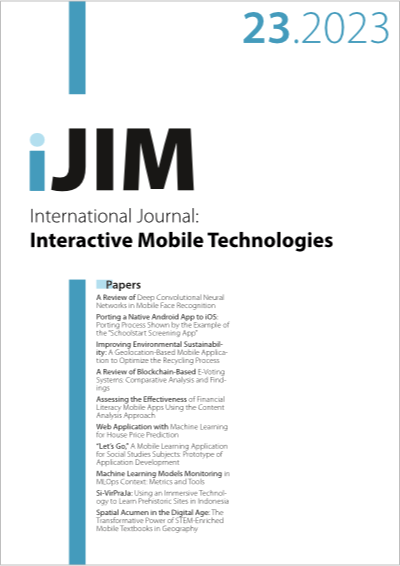Improving Environmental Sustainability: A Geolocation-Based Mobile Application to Optimize the Recycling Process
DOI:
https://doi.org/10.3991/ijim.v17i23.44417Keywords:
Mobile-D; geolocation; Mobile application; recyclingAbstract
Environmental pollution caused by human activities is a global concern, and recycling is an effective strategy to reduce waste and minimize its negative impact on the environment, as these pollutants can have detrimental impact on ecosystems, human health, and the quality of life in general. Recycling avoids the accumulation of waste in landfills, which can contaminate soil, water, and air as well as reducing the production of new products. The objective of this work is to implement a mobile application to improve waste management by recycling companies. The Mobile-D methodology was used for the development of the project because it focuses on optimizing the efficiency and performance of mobile applications since it allows working in 5 phases which are: Exploration, Initialization, Production, Stabilization and Testing. In the first indicator (KPI-1), an improvement in customer retention was observed, with an increase of 114.29% in positive responses in the post-test. In the second indicator (KPI-2), there was a 39.92% decrease in response time, indicating a faster response in the collection service. In the third indicator (KPI-3), a significant increase of 86.86% in the volume of waste for recycling was observed. The results showed improvements in all indicators, indicating a positive impact of the implementation of the mobile application on waste management by the companies in the sector.
Downloads
Published
How to Cite
Issue
Section
License
Copyright (c) 2023 Orlando Iparraguirre-Villanueva, Luis Tuesta-Pereda, Elvis Tapia-Chavez, Michael Cabanillas-Carbonell

This work is licensed under a Creative Commons Attribution 4.0 International License.


